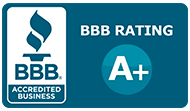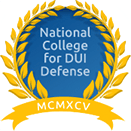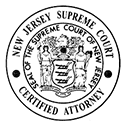Possession With Intent to Distribute Attorney in South Plainfield New Jersey
Distribution of drugs of any kind is a serious offense in South Plainfield New Jersey and every other place in the state. It is always a felony that can cause significant issues in your life whether the controlled dangerous substance (“CDS”) is marijuana or something much more addictive like heroin, cocaine, MDMA, LSD, methamphetamine or opiate prescription drugs. Given these significant consequences, it is your best interest to retain a lawyer who is accomplished in the defense of drug/CDS distribution charges.
Our knowledge drug distribution defense attorneys can help you obtain the best resolution of your offense. The lawyers at the Law Offices of Jonathan F. Marshall are former prosecutors who have over a century in practice to get your charge dismissed or reduced. We will utilize our extensive experience to successfully challenge the legality of the search and seizure in your case and any other issues. Contact us at (732) 227–1200 to speak with a skilled distribution defense attorney in a free initial consultation.
Drug Distribution Charge in South Plainfield New Jersey
A controlled dangerous substance (CDS) is a drug regulated under New Jersey’s Controlled Dangerous Substances Act, which classifies certain drugs into five categories or “schedules” based on the drug’s potential for abuse. Schedule I contains CDS like heroin, MDMA, Ecstasy, Molly, LSD, methamphetamine and marijuana. Schedule II contains cocaine, Hydrocodone, Oxycodone, Adderall, Vicodin and Percocet. New Jersey statute N.J.S.A 2C:35-5 makes it a crime to distribute or dispense, or to possess or have under your control with the intent to distribute a controlled dangerous substance.
Under N.J.S.A. 2C:35-5, the seriousness of the offense and the severity of the penalties that may be imposed vary depending on the particular schedule to which the related drug belongs. If you are found in possession of an amount of a CDS deemed to be for distribution, depending on the type and quantity of the drug, you can be charged with a first, second, third, or fourth degree crime (all felonies), with a first degree crime being the most serious of the charges and carrying the most severe penalties.
If convicted of a first degree crime for CDS distribution in New Jersey, you will be looking at spending a minimum of 10 years with a maximum of 20 years in prison and a fine of up to $500,000. Distribution is a first degree crime when it involves 5 ounces or more of heroin, cocaine, MDMA, Ecstasy, Molly or methamphetamine, over 100 milligrams of LSD or at least 25 pounds of marijuana.
A second degree crime will be subject to 5 – 10 years in prison and a fine of up to $150,000. Distributing or possession with intent to distribute at least one-half ounce but less than 5 ounces of cocaine, MDMA, heroin or methamphetamine. It is also a second degree crime to sell or distribute at least 5 pounds of marijuana but less than 25, over 100 dosage units of a prescription drug like Xanax, Oxycodone or Suboxone, or less than 100 milligrams of LSD.
A third degree crime carries 3 – 5 years in prison and a fine of up to $75,000. Third degree distribution applies to at least one ounce but less than 5 pounds of marijuana, 5-100 dosage units of a prescription drug or less than one-half ounce of cocaine, MDMA, methamphetamine or heroin.
A fourth degree crime is punishable by possible jail time up to 18 months and a fine of up to $25,000. It is a fourth degree crime to distribute or sell less than one ounce of marijuana or less than 5 dosage units of a prescription legend drug.
The state of New Jersey also calls for these penalties to be enhanced in certain circumstances whereby a parole disqualifier will be added to the charge. This means that if convicted you will have to complete a certain minimum amount of your sentence before you will be eligible for parole (i.e. period of parole ineligibility or mandatory minimum term of imprisonment). This is triggered if drugs are distributed in a school zone (i.e. within 1,000 feet of school property) or in a public park (i.e. within 500 feet of a public park).
If you are facing a distribution charge, there are a number defenses that an experienced defense attorney can use to get your case downgraded or dismissed. For instance, if you were subject to a traffic stop which resulted in drugs being found, we may be able to prove that the traffic stop was unlawful, even if there was a legal search thereafter. This in turn can result in the case being thrown out.
We can also challenge the validity of the search itself. Did the police have sufficient cause to search you? Did the police have a warrant to search you? Did you consent to the search? Did the police follow proper procedure to gain your consent? If the answer to either of these questions is no, then any evidence obtained may be suppressed and the case thrown out.
Lastly, if you are charged with CDS distribution, the state must prove that you actually distributed or intended to distribute the drugs. Just because you have a large quantity of a drug in your possession, doesn’t mean you that you were distributing it. If the state has no other evidence to prove distribution, there is a strong chance that we can have the distribution charge thrown out and only have to deal with a simple possession case.
South Plainfield Drug Distribution Defense Attorney
Before you appear on a distribution of drugs charge, it is crucial that you consult with an experienced defense attorney. This is because every CDS distribution case, irrespective of the type and quantity of drugs, can land you in prison for years and render you a felon. The lawyers in our firm, the Law Offices of Jonathan F. Marshall, are highly qualified trial advocates with the skills to your offense downgraded or dismissed. If you have been charged with CDS distribution in South Plainfield, NJ, speak with a distribution defense lawyer at our firm. We are eager to talk to you about the circumstances of your case and how we can build a strong defense to fight your distribution of CDS charge. Contact us at (732) 227–1200 for a free consultation.













